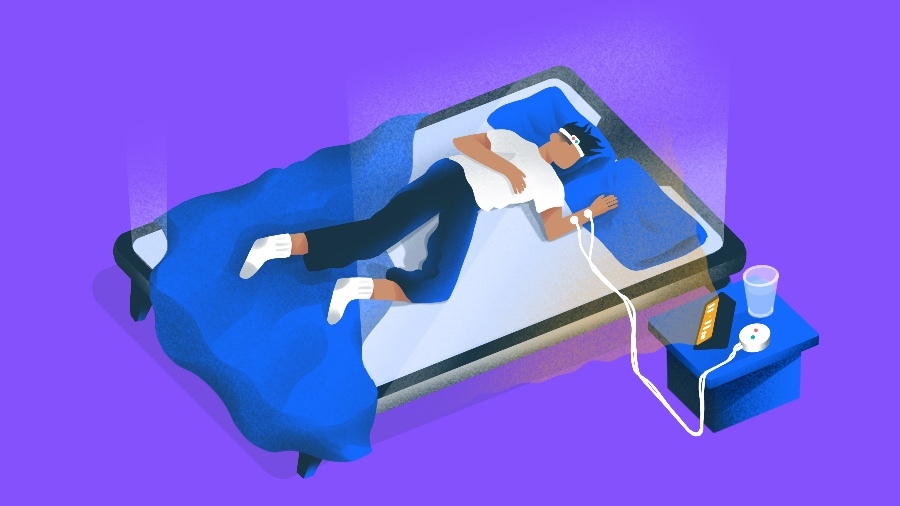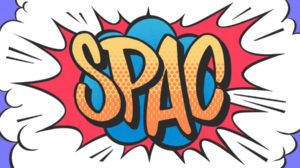It can seem like a badge of honor to go without the eight hours of sleep, on average, that is recommended to us, but what if we didn’t have to?
Subscribe to the Crunchbase Daily
A number of startups have emerged in the past five years that aim to inject technology into our sleep routine, a small part of our day that has an outsized impact on the quality of our waking hours and overall health.
That’s the goal of companies such as Bryte, a restorative sleep technology company developing an artificial intelligence-connected and robotics-powered bed. The 5-year-old Los Altos, California-based company announced a $24 million Series A funding in January led by ARCHina Capital.
“Sleep is the foundation of health and wellness. It’s what drives your physical, emotional and mental well-being, and if your sleep is poor, it can have drastic impacts,” Bryte, co-founder, and CEO Ely Tsern told Crunchbase News. “The global pandemic shifted people’s perception, and now they are more aware of their health.”
Making an investment
With millions of people struggling with sleep, there is huge potential in the market, said Trae Stephens, partner at Founders Fund. He expects to see more legacy mattress company players figure out how to keep up with the innovations. This includes companies, such as Sleep Number, which introduced its Sleep Number 360 smart bed in 2016, and in January 2020 announced a collaboration with the Mayo Clinic to advance sleep science and cardiovascular medicine.
Since 2016, investors have pumped $1.9 billion into global companies focused on sleep technology and equipment, according to Crunchbase data.
Large rounds within the past year went to health- and wellness-tracking companies that have a sleep component: Cue raised $100 million in Series C funds last June, while WHOOP gained $100 million in Series E funding in October. Meanwhile, e-commerce mattress company Casper raised the biggest round in the last five years, a $170 million Series C in 2017. The company went public in February 2020 at $12 per share, but share prices have gone down post-IPO.

Founders Fund invested in sleep fitness company Eight Sleep in 2019, leading its $40 million Series C. Eight Sleep developed a heating and cooling mattress, and has received somewhat of a “cult” following, with athletes, technology CEOs and other people singing the company’s praises, Stephens said in an interview.
“You can look at the community of people using Eight Sleep and see why it is an investable product,” he added. “Most mattress companies don’t have high NPS (Net Promoter Score) scores, and if they do, it is more because of customer service than product quality. Rather, Eight Sleep does what they say it will do.”
He wasn’t a believer himself until he tried an Eight Sleep mattress with some surprising results.
“I used to sleep ‘hot,’ tossing and turning, kicking the sheets off,” he said in an interview. “I can look at the data from the sensors and say emotionally, it is true I don’t wake up in the middle of the night anymore. My quality of sleep is meaningfully different.”
‘Just scratching the surface’
Meanwhile, about $430 billion is spent each year on sleep aids by people trying to achieve optimal sleep. The global sleep economy is expected to grow to $585 billion by 2024, according to market and consumer data company Statista. And even with all of that money spent, the majority of adults still get poor sleep, Tsern added.
Bryte’s bed monitors temperature, pressure points and updates those algorithms every night so sleep quality is individualized as it changes from night to night and year to year. The beds are sold for $7,600 for a queen and $8,600 for a king, but the company is working to scale production to eventually bring the cost down, including partnering with luxury hotels, he said.
“You sleep, and the bed figures out what makes you sleep better and then provides the optimal environment each night,” Tsern said. “We are seeing 40, 50 and 60 percent better sleep, but we are just scratching the surface of the technology, and as we scale, we feel we can reach people across the world.”
It’s not just adults that don’t sleep well. The American Academy of Pediatrics estimates that sleep problems affect 25 percent to 50 percent of children and 40 percent of adolescents. From an early age, children experience everything from sleep separation anxiety to waking up in the middle of the night to later staying up too late playing video games or doing homework.
That’s where Moshi comes in. The London-based startup developed a sleep and mindfulness app for children under 10, featuring melodic stories created to help them drift off to sleep quickly.
Since forming in 2018, Moshi has raised $15 million in venture funding. Fast-forward three years, and its library now contains about 300 pieces of original content and more than 200 million stories have been played, CEO Ian Chambers said in an interview.
With nearly 43,000 reviews in the Apple App Store, Chambers said he enjoys reading reviews from parents who once struggled with bedtime but now don’t.
“We understand the challenges of the different stages of growing up, so we created the world of Moshi, which has hundreds of characters, and is endorsed by scientific experts,” he said. “Our goal is to improve kids’ health in whatever way works. We are also moving into other ways of using the magic of mindfulness and well-being.”
Gaining back control of sleep
Last August, Rebecca Robbins, who holds a doctorate in communication and health marketing, collaborated with bio alarm clock app Sleep Cycle to release a report on the state of sleeplessness during the pandemic. In it, researchers aimed to see how the pandemic affected sleep and mental health.
Some key findings included that teens and young adults had the worst quality sleep, and reported the highest rates of depression; women were twice as likely to report taking longer to fall asleep than men; and 45 percent of respondents reported heightened anxiety while 24 percent reported heightened feelings of depression.
“Sleep is a fascinating part of the day, and we have to do it or there are consequences,” said Robbins, who is associate scientist at Brigham and Women’s Hospital and instructor in medicine at Harvard Medical School. “We are irritable, anxious and make poor decisions in other areas of health, like appetite and exercise.”
The problem, she finds, is that humans have long been sacrificing sleep. The good news is, the way we sleep isn’t completely out of our control. And, over the past five years, there has been a shift in interest in reversing sleep habits, Robbins said.
She sees startups being a part of the opportunity “to move the needle,” especially as the wearables space is exploding. Another part of her research found that 1 in 3 Americans tracked their sleep. However, she cautions that with so many things on the market, not every device, gadget or gizmo will yield the same benefits.
“Not all sleep tracking has been validated nor are all companies with working scientists,” Robbins added. “If you have data to show efficacy, then yes, it most likely will be a great tool for your pocket or sheets to improve your sleep.”
Next frontier
Danny Shea, chief platform officer at behavior change technology company Thrive Global, also agrees that humans are short-changing themselves on sleep.
“Sleep is the underpinning of every aspect of our physical well-being, our mental well-being and our performance, including our creativity, decision-making, problem solving and ability to focus,” Shea said via email. “As the science makes clear, the way we improve our performance is by improving our well-being.”
Media entrepreneur and Thrive founder Arianna Huffington is well-known for sharing her struggle with stress and burnout. She started Thrive in 2016 and has since raised $50 million in known venture-backed dollars, according to Crunchbase data.
The sleep tech world is booming, and Shea said Thrive partnered with Audible, Amazon’s audiobooks platform, to launch its Sleep Collection, which features bedtime stories and meditations from celebrities.
He also sees wearables and sleep trackers getting more sophisticated in data collection and analysis.
“Sleep truly is a public health issue, and at Thrive Global, it’s been great to see the acceleration of awareness about the central role sleep plays in our health and well-being,” Shea added.
Robbins believes the next frontier of sleep will include diagnosing and treating sleep disorders, an area she believes presents a big opportunity to demystify.
Technologies are also advancing in areas like neuromodulation, which involves stimulating nerves in the brain to help unplug and distress, something currently being used by athletes for focused relaxation periods, she said.
“There is such an opportunity to leverage devices to track, but also nudge people toward healthier behaviors,” Robbins added.
Illustration: Dom Guzman

Stay up to date with recent funding rounds, acquisitions, and more with the Crunchbase Daily.






![Illustration of 50+ woman on smartphone. [Dom Guzman]](https://news.crunchbase.com/wp-content/uploads/2021/01/Femtech_-300x168.jpg)
![Illustration of pandemic pet pampering. [Dom Guzman]](https://news.crunchbase.com/wp-content/uploads/2021/03/Pets-2-300x168.jpg)

67.1K Followers